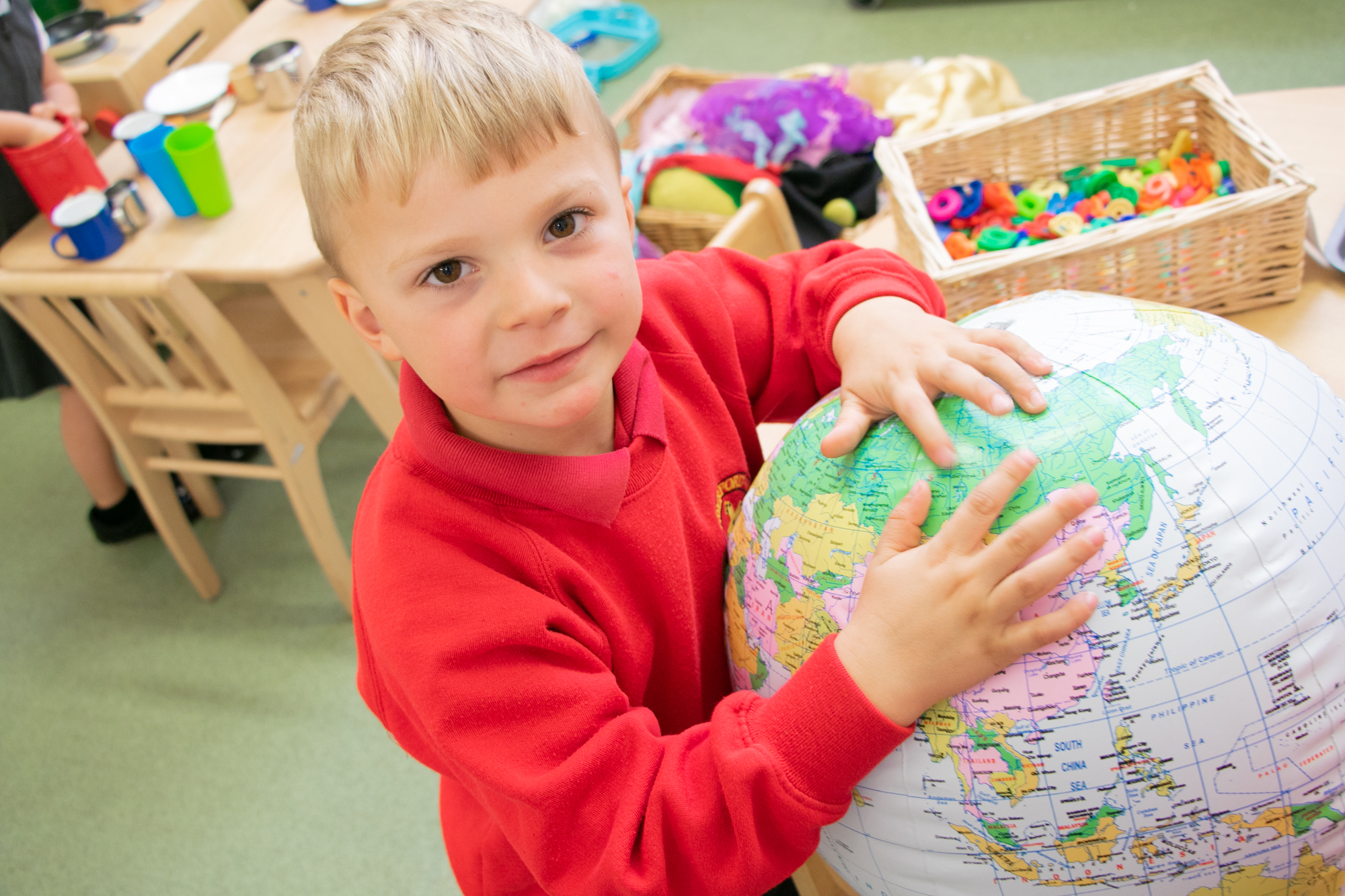
'The study of geography is about more than just memorising places on a map. It's about understanding the complexity of our world, appreciating the diversity of cultures that exists across continents. And in the end, it's about using all that knowledge to help bridge divides and bring people together.' - Barack Obama
Geography at Aberford
Our Geography curriculum identifies the knowledge and skills that pupils are to learn. The knowledge in geography is organised into two forms: substantive knowledge and disciplinary knowledge. Substantive knowledge sets out the content that children will learn. We address this through:
- Locational Knowledge
- Place Knowledge
- Human and Physical Geography
- Geographical Skills and Fieldwork
Teaching equips pupils with knowledge about diverse place, people, resources and natural and human environments, together with a deep understanding of the Earth's key human and physical processes. Our curriculum is designed to ensure that pupils' growing knowledge about the world helps them to deepen their understanding of the interaction between physical and human processes and of the formation and use of landscapes and environments. Geographical knowledge, skills and understanding provide the frameworks and approaches that explain how the Earth's features are shaped.
Disciplinary knowledge considers how Geographical Knowledge originates and is revised. It is through disciplinary knowledge that pupils learn the practices of Geographers. Map reading skills enhance children's disciplinary knowledge, equipping them with lifelong and practical skills that children will be able to apply in future learning, in the workplace and in everyday life.
Fieldwork
Fieldwork is recognised as an essential component of the practice of Geography and in mapped throughout the 12 units in each two year cycle of our rolling programme of study. Fieldwork is an essential part of Geographical study because it gives:
- enjoyment and inspiration through memorable experiences
- opportunities for developing practical group work and leadership skills
- improved behaviours towards learning by increasing confidence and the ability to deal with risk and uncertainty
- opportunities to acquire knowledge of the world through direct observation and to develop better understanding of the nature of Geographical Knowledge.
Trips and visits enhance our Geography curriculum by giving many opportunities for fieldwork experiences. However, our beautiful and rural school grounds are our very best tool for teaching and learning fieldwork skills:
- Accessibility - they are just outside our classroom doors
- Builds on children's knowledge and experience of a familiar place
- Motivation - children are interested in their own place
- Provides the opportunity to investigare many aspects of physical, human and environmental Geography
- Provides the context for the development and application of enquiry skills, geographical vocabulary, fieldwork skills and map skills
- School grounds investigations offer the possibility of authentic learning activities which have real world outcomes.

National Curriculum Aims for all pupils:
- develop contextual knowledge of the location of globally significant places – both terrestrial and marine – including their defining physical and human characteristics and how these provide a geographical context for understanding the actions of processes
- understand the processes that give rise to key physical and human geographical features of the world, how these are interdependent and how they bring about spatial variation and change over time
- are competent in the geographical skills needed to:
- collect, analyse and communicate with a range of data gathered through experiences of fieldwork that deepen their understanding of geographical processes
- interpret a range of sources of geographical information, including maps, diagrams, globes, aerial photographs and Geographical Information Systems (GIS)
- communicate geographical information in a variety of ways, including through maps, numerical and quantitative skills and writing at length
Geography - Long Term Plans and Progression
Recommended Books
Class 1
.jpg)
.jpg)
Class 2
.jpg)
.jpg)
Class 3
.jpg)
.jpg)
Class 4
.jpg)
.jpg)
If you have any questions regarding the curriculum we teach, please contact the school directly.